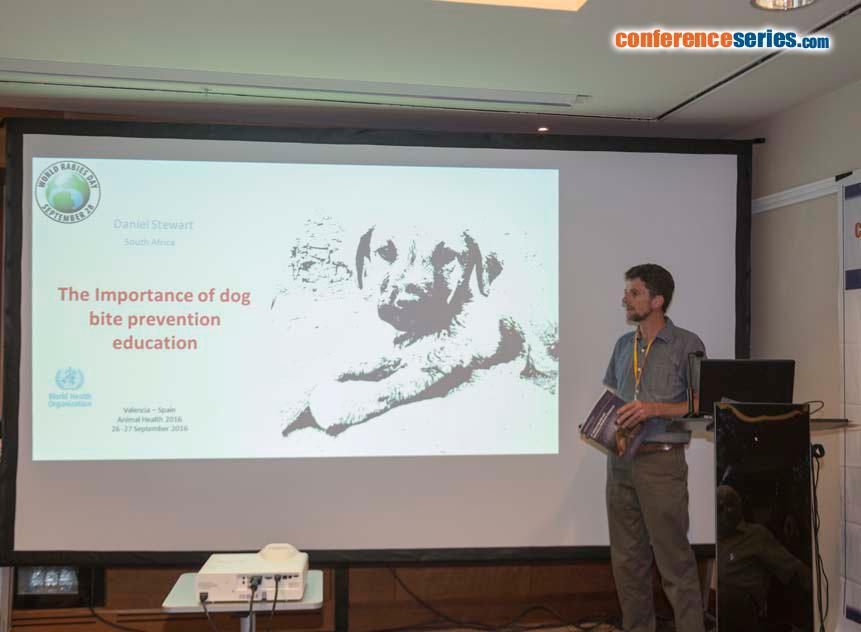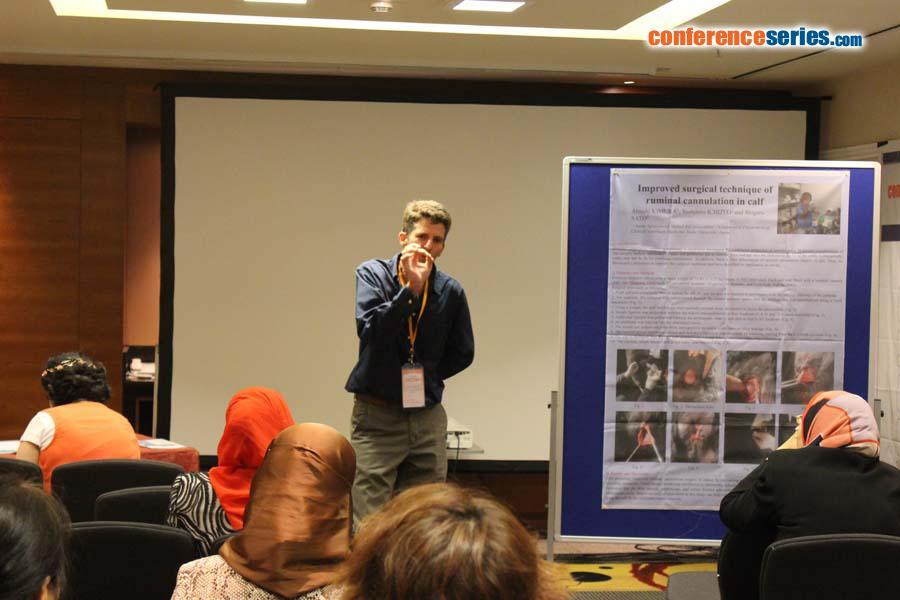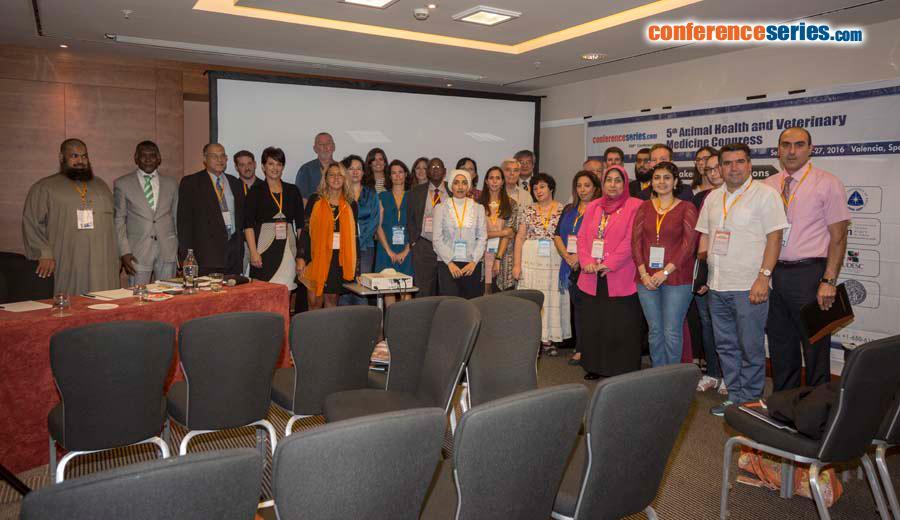
Stewart Daniel
World Health Organization (WHO), South Africa
Title: The importance of dog bite prevention
Biography
Biography: Stewart Daniel
Abstract
Despite the ancient symbiotic relationship between dogs and humans, conflict between both are inevitable and dog bites are as old as the relationship itself. Biting is usually driven by the dog’s natural instincts, but sometimes a disease such as rabies plays a role. With the global focus on human rabies elimination by 2030 and considering that dog bites are 99% of the cause of such a zoonotic disease it seems foreseeable that dog bite prevention should be the next step forward towards eliminating dog mediated human rabies. In an internationally supported rabies elimination project in KZN South Africa, it became clear that despite a dramatic reduction in rabies amongst dogs through vaccination, this did little to reduce dog bites, and as awareness increased so rabies treatments with, Rabies Post Exposure Prophylaxis (PEP) increased despite the number of potential rabies contacts being drastically reduced. It also became apparent that most dog bites could have been avoided through education, which would reduce both the cost and potential contact with rabid animals by applying simple principles to the interactions between humans and dogs. Consequently, the following questions were be asked: • Why do dogs bite? • What human behaviour elicits bites? • How can these behaviours be avoided? • Can bites from rabid dogs also be avoided? Generally dog bites are not merely caused by a rabies infected dog but rather by multi factors of human, environmental and dog behavioural influences. Education on dog bite prevention globally, should be a part of every countries one health approach. This will decrease the incidence of human rabies as well as the financial, physical and psychological burden of treating potentially, these unnecessary dog bites. Despite a global focus on the number of children been bitten by dogs or dying from rabies, a high percentage of dog bite victims are in fact adults. Hence, dog bite prevention education needs to be, not only focused on children but expanded to be more inclusive of the whole of society and broadened in scope to include information on both dog behaviour, bite prevention and simple, primary animal welfare and husbandry. However with an increasing global emphasis on neglected zoonotics, it is also clear this holistic ‘pet care’ education can in turn address multiple zoonotics. This One Health concept should consider all aspects of the relationship between humans and dogs in order to nurture that valuable relationship while also reducing dog bites and along with it, the multiple zoonosis diseases and parasites that are commonly separated by different programs and priorities.






